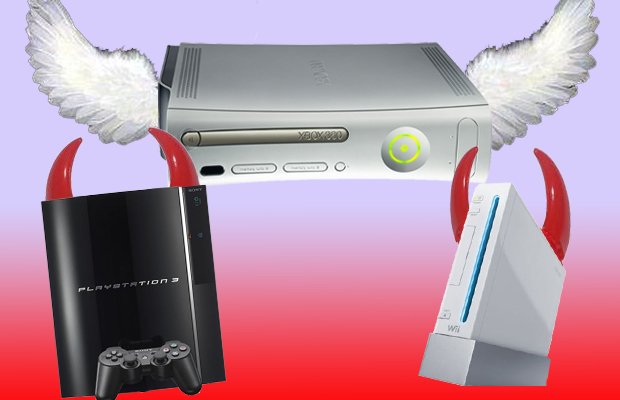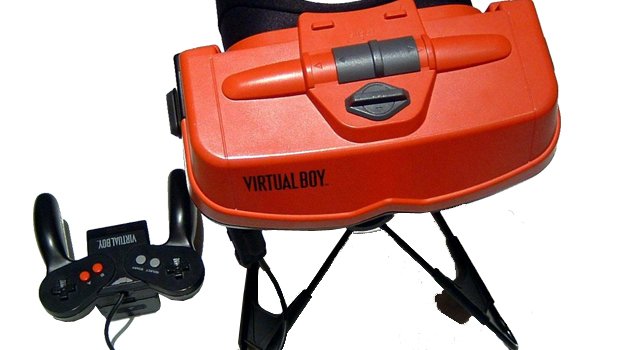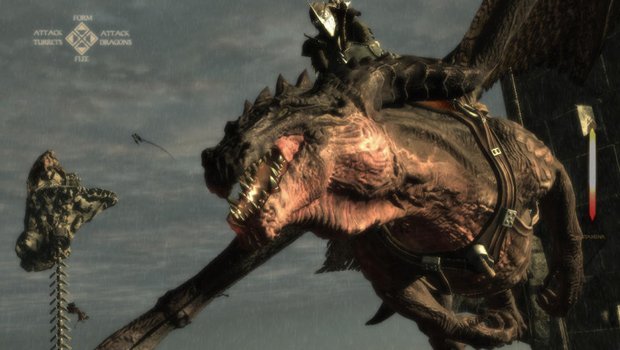E3 2011: Why Microsoft's press conference showed that it may have much bigger problems than Kinect
Naive? Out of touch? Out of date?

So the Microsoft press conference. Not pretty was it? In fact I’d go as far as to say that for the core gamer it was a steaming great car crash of twisted metal, boiling blood and squishy bits of brain hanging off the wing-mirrors. I’m not just having a moan because of the lack of first-party core content and the proliferation of Kinect here, though the percentage focus was pretty miserable unless you’re three years old.
No, the biggest problem, way beyond what Microsoft chose to show, was the way Microsoft showed itself to be thinking about the industry around it. Or rather not. There are bigger problems here than Kinect. Much bigger, much more fundamental ones. And they could run Microsoft into a whole heap of trouble very soon indeed.
It was the worst of both worlds
First up, Red Ring of Death aside, Microsoft had been doing pretty well this generation until last year. Sony started this gen about as popular as a clown with herpes, coming across as arrogant, complacent, and holier-than-thou, with anattitude that it had the one, true path for the future of gaming. Nintendo just gave the impression that it didn’t give a toss about gaming or gamers at all any more. Sorry guys, Ninty had better things to do than pay attention to the loyalists who’d kept it afloat through a tough decade. It had money to leech off idiots, children, and the children of idiots. And boy, did it have a lot of money to leech.

Above: Ah, those were the days...
But Microsoft. Good old Microsoft. After a slow start with the original Xbox, MS has spent most of this generation knocking it out of the park, and doing so – hardware failures aside – with a fairly clean reputation amongst the hardcore gamer. More affordable and approachable than Sony, more aware of the core gamer’s needs than Nintendo, basically, you were safe with a 360.
Now though, the inverse is true. MS has taken on all the traits that hampered both of its rivals, and combined them all into one big festering cocktail of distasteful presentation.
The Nintendo ingredients
Fairly obvious, but I’ll go through them anyway. Microsoft has spotted the potential in the casual market and thrown everything at it until it has nothing left to throw. Nintendo did the same thing to significant financial success, but with certain grave failings as well. Nintendo, for all of the benefits afforded by its consistently progressive thinking, has often been its own worst enemy.
Weekly digests, tales from the communities you love, and more
Nintendo you see, in celebrating its own cleverness, has historically often become so drunk on its own ideas that it’s ended up dancing on top of the innovation table for so longthat it hasn’t noticedthe urinein its trousers andthe puke on its shirt. The Virtual Boy. Game Boy Advance connectivity. The Power Glove. Nintendo’s mess-ups have often led to better things later on, but the company’s early enthusiasm has often blinded it to the fact that its ideas are often technologically not ready or else conceptually flawed.

Above: Conceptually flawed
And Microsoft it seems, perhaps as a result of being the youngest of the current platform-holders, has stumbled wide-eyed into the pitfalls of Nintendo’s own excitable thinking. “The casual market is untapped! Let’s get it!” thought Nintendo. And then thought very little else until the market was bled dry. “The casual market is buying a shitload of Wiis! Let’s get a slice of that ourselves!” thought Microsoft. And then buried its head so far in its exciting new ideas that it didn’t see anything that happened between then and now. Or any of the mistakes it was making.
The Sony ingredients
Remember when Sony was all “Hey, you’ll be glad you spent all your rent and half your food budget for the month on a PS3, because we’re fricken awesome and you’ll see that we’re right soon”? Remember when it was all “Unsure about Blu-ray? Well screw you. That’s only because you’re an idiot and we haven’t educated you yet”? Remember when it was all “Screw controller rumble. That shit is gone, dog. You really want this hastily cobbled-together tilt-o-pad, and soon you won’t be able to stand playing a game without it”? Yeah?
Well that’s Microsoft now.
When you’re launching any new product, you have to give off an air of confidence. But if you take it too far, you come across as arrogant. Further than that, andyou become preachy. Further than that, and you become desperate.

Above: Screw that rumble, bitches! You've got wonky dragons now!
Look at Microsoft’s general message with Kinect last night. According to Microsoft, it is the future. It will improve everything, from TV to communication to games. The world has been missing it’s particular brand of magic for all of the time it hasn’t existed, and good Lord, should we be grateful that Microsoft has created it to show us all how empty and dysfunctional life was before it.
Those TV remotes that have worked perfectly, quickly and efficiently for decades? Rubbish. What you really needed was sluggish and unreliable voice commands. Those quick and easy-to-navigate game menus? Rubbish. You really wanted to wave your arms around and hope a camera knew what you wanted and could react fast enough. Those nippy, responsive control systems that the games industry has been honing for thirty years? Rubbish. You’ve just been waiting and praying for the ability to shout into a microphone, simultaneously feeling awkward and divorcing yourself from the immersion of your chosen game world.
No, the biggest problem, way beyond what Microsoft chose to show, was the way Microsoft showed itself to be thinking about the industry around it. Or rather not. There are bigger problems here than Kinect. Much bigger, much more fundamental ones. And they could run Microsoft into a whole heap of trouble very soon indeed.
It was the worst of both worlds
First up, Red Ring of Death aside, Microsoft had been doing pretty well this generation until last year. Sony started this gen about as popular as a clown with herpes, coming across as arrogant, complacent, and holier-than-thou, with anattitude that it had the one, true path for the future of gaming. Nintendo just gave the impression that it didn’t give a toss about gaming or gamers at all any more. Sorry guys, Ninty had better things to do than pay attention to the loyalists who’d kept it afloat through a tough decade. It had money to leech off idiots, children, and the children of idiots. And boy, did it have a lot of money to leech.

Above: Ah, those were the days...
But Microsoft. Good old Microsoft. After a slow start with the original Xbox, MS has spent most of this generation knocking it out of the park, and doing so – hardware failures aside – with a fairly clean reputation amongst the hardcore gamer. More affordable and approachable than Sony, more aware of the core gamer’s needs than Nintendo, basically, you were safe with a 360.
Now though, the inverse is true. MS has taken on all the traits that hampered both of its rivals, and combined them all into one big festering cocktail of distasteful presentation.
The Nintendo ingredients
Fairly obvious, but I’ll go through them anyway. Microsoft has spotted the potential in the casual market and thrown everything at it until it has nothing left to throw. Nintendo did the same thing to significant financial success, but with certain grave failings as well. Nintendo, for all of the benefits afforded by its consistently progressive thinking, has often been its own worst enemy.
Nintendo you see, in celebrating its own cleverness, has historically often become so drunk on its own ideas that it’s ended up dancing on top of the innovation table for so longthat it hasn’t noticedthe urinein its trousers andthe puke on its shirt. The Virtual Boy. Game Boy Advance connectivity. The Power Glove. Nintendo’s mess-ups have often led to better things later on, but the company’s early enthusiasm has often blinded it to the fact that its ideas are often technologically not ready or else conceptually flawed.

Above: Conceptually flawed
And Microsoft it seems, perhaps as a result of being the youngest of the current platform-holders, has stumbled wide-eyed into the pitfalls of Nintendo’s own excitable thinking. “The casual market is untapped! Let’s get it!” thought Nintendo. And then thought very little else until the market was bled dry. “The casual market is buying a shitload of Wiis! Let’s get a slice of that ourselves!” thought Microsoft. And then buried its head so far in its exciting new ideas that it didn’t see anything that happened between then and now. Or any of the mistakes it was making.
The Sony ingredients
Remember when Sony was all “Hey, you’ll be glad you spent all your rent and half your food budget for the month on a PS3, because we’re fricken awesome and you’ll see that we’re right soon”? Remember when it was all “Unsure about Blu-ray? Well screw you. That’s only because you’re an idiot and we haven’t educated you yet”? Remember when it was all “Screw controller rumble. That shit is gone, dog. You really want this hastily cobbled-together tilt-o-pad, and soon you won’t be able to stand playing a game without it”? Yeah?
Well that’s Microsoft now.
When you’re launching any new product, you have to give off an air of confidence. But if you take it too far, you come across as arrogant. Further than that, andyou become preachy. Further than that, and you become desperate.

Above: Screw that rumble, bitches! You've got wonky dragons now!
Look at Microsoft’s general message with Kinect last night. According to Microsoft, it is the future. It will improve everything, from TV to communication to games. The world has been missing it’s particular brand of magic for all of the time it hasn’t existed, and good Lord, should we be grateful that Microsoft has created it to show us all how empty and dysfunctional life was before it.
Those TV remotes that have worked perfectly, quickly and efficiently for decades? Rubbish. What you really needed was sluggish and unreliable voice commands. Those quick and easy-to-navigate game menus? Rubbish. You really wanted to wave your arms around and hope a camera knew what you wanted and could react fast enough. Those nippy, responsive control systems that the games industry has been honing for thirty years? Rubbish. You’ve just been waiting and praying for the ability to shout into a microphone, simultaneously feeling awkward and divorcing yourself from the immersion of your chosen game world.



